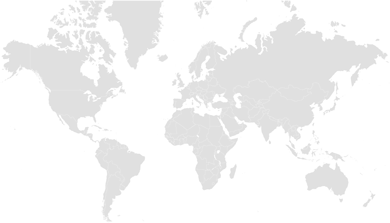Case study
2024 • Amman Municipality; Government of Jordan Amman – Addressing solid waste management challenges
Amman, Jordan, generates over one million tonnes of waste annually, a number exacerbated by refugee influxes and urbanization. The city's waste management challenges include overburdened infrastructure, a lack of private sector involvement, and low public awareness. Efforts such as the National Municipal Solid Waste Management Strategy and international partnerships have driven pilot projects for biogas recovery, waste separation, and recycling. These initiatives aim to modernize the waste sector, mitigate environmental impacts, and promote sustainability through inclusive and innovative approaches.
Recovered Materials & Products
Energy
Electricity
Biogas
Materials
Waste Streams
Organic solid waste
Solid waste
Confirmed countries
Australia


Background and Context
Location: Amman, Jordan
Resource Stream: Municipal solid waste, including organic waste and recyclables.
Challenges: Amman's waste management is strained by rapid urbanization, demographic pressures (including refugee inflows), and limited infrastructure for sorting and recycling. Cultural habits and low public awareness exacerbate waste generation, particularly food and single-use plastic waste.
Technologies/Methods Used
Amman has initiated various innovative solutions to address waste management challenges:
- Biogas Recovery: Pilot projects in Al-Dulayl, Al-Salt, and Madaba collect and treat biogas from landfill waste, using it to generate electricity and reduce greenhouse gas emissions.
- Recycling Pilot Programs: These projects focus on waste separation and material recovery. Despite progress, the scale remains limited due to underdeveloped infrastructure and expertise.
- Public Awareness Campaigns: Collaborations with the EBRD and EU have fostered educational programs in schools to promote responsible waste disposal and recycling.
- Decentralized Wastewater Treatment: Research by WAKILEH highlights the potential for decentralized systems to enhance efficiency.
Implementation Steps
- Strategic Policy Framework: The government adopted the National Municipal Solid Waste Management Strategy (2015–2034), focusing on modernizing practices and integrating Reduce, Reuse, and Recycle (RRR) principles.
- Public-Private Collaboration: Partnerships with international organizations (e.g., EBRD) and NGOs provided funding and technical support for pilot projects and public engagement initiatives.
- Innovative Financing Mechanisms: Introduction of green bonds and blended finance for large-scale projects such as the As-Samra Wastewater Treatment Plant expansion.
- Capacity Building: Public awareness campaigns and school initiatives improved community understanding and participation in waste management.
Outcomes and Impacts
- One million tonnes of waste managed annually.
- Biogas pilot projects contribute to electricity generation, reducing landfill waste.
- Improved public awareness and participation in waste segregation and recycling.
- Enhanced sustainability through the reduction of greenhouse gas emissions and the promotion of circular economy principles.
- Inclusion of innovative financing mechanisms like green bonds to attract private sector investments.
Lessons Learned
Amman’s experience highlights the importance of public engagement, with educational programs in schools and communities improving awareness and participation in recycling and waste segregation. The involvement of the private sector has demonstrated the value of public-private partnerships in addressing urban waste challenges and filling infrastructure gaps.
The city’s biogas recovery and decentralized treatment projects showcase the scalability of innovative solutions, though scaling these programs further requires significant investment in sorting and recycling facilities. Amman provides valuable insights into integrating policy, technology, and community involvement for sustainable urban waste management.
Learn more
This case study is extracted from the publication linked below: "Harnessing the Role of Private Sector in Waste Management through South-South and Triangular Cooperation for Inclusive Urbanization, UNDP (2023)"
https://www.undp.org/policy-centre/istanbul/publications/harnessing-role-private-sector-waste-management-through-south-south-and-triangular-cooperation-inclusive
Technologies
Themes
Capacity building
Policy and regulation
Public-private partnerships